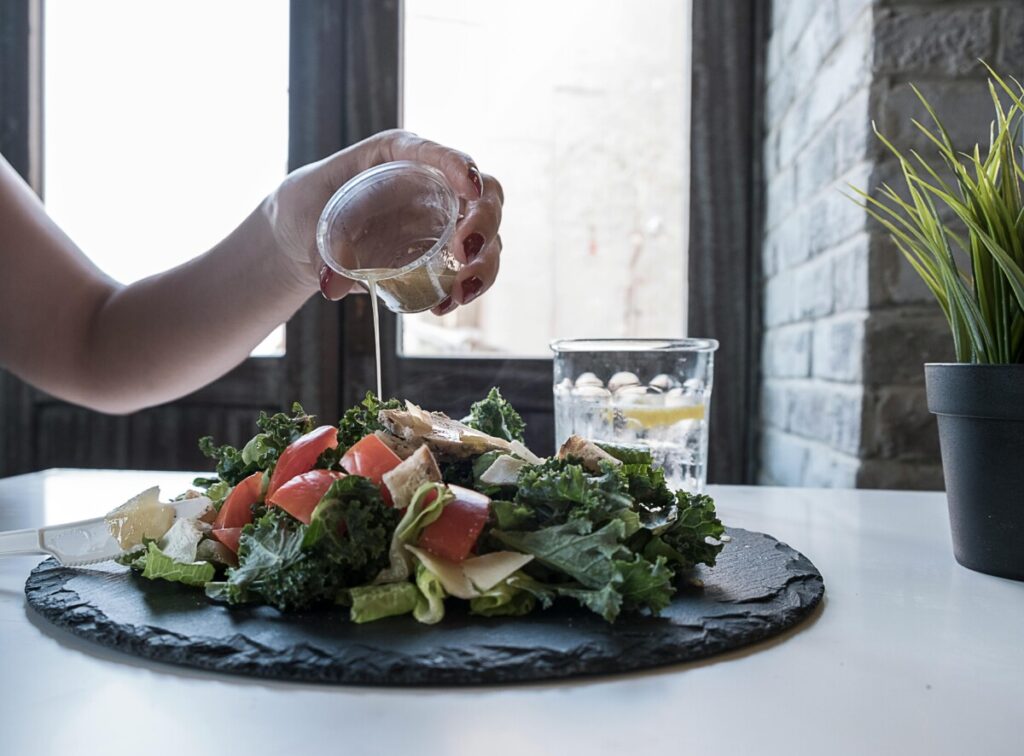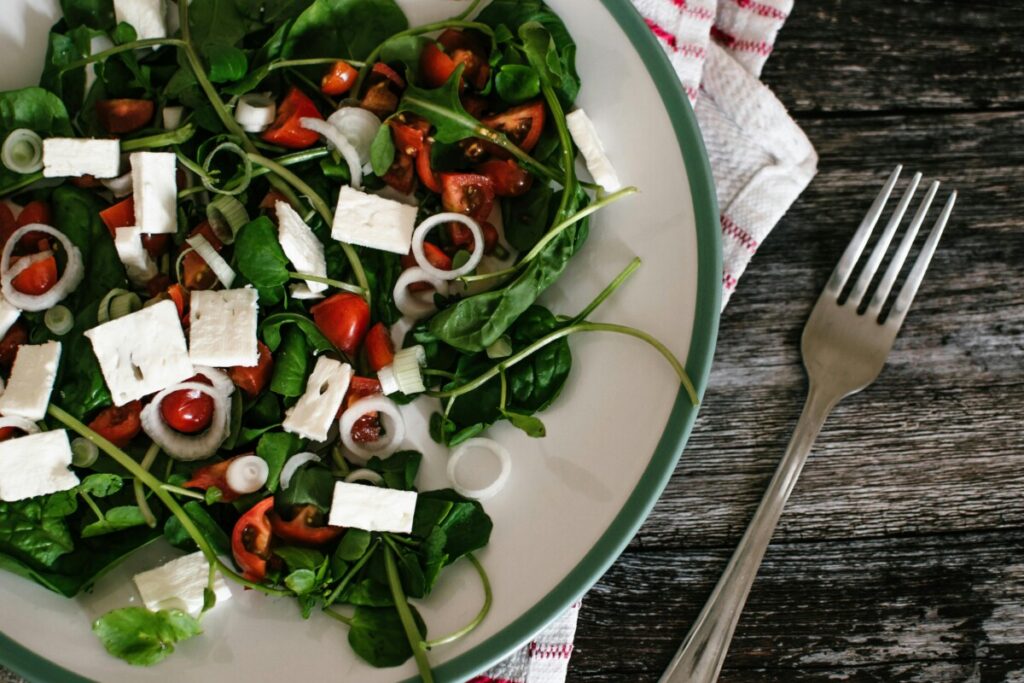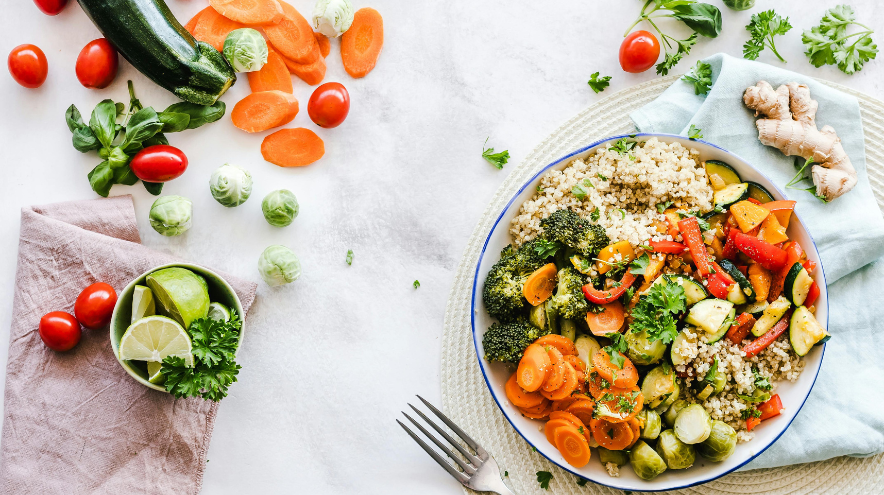Cancer-Fighting Foods You Need In Your Grocery Cart

Your grocery cart can be a powerful ally in the fight against cancer. A healthy, balanced diet is crucial for reducing cancer risk, as it helps maintain a healthy weight and supports overall well-being. According to Cancer Research UK, focusing on the quality of your diet is more important than fixating on individual foods.
Enter cancer-fighting foods—those everyday heroes that can provide significant health benefits. These foods, rich in antioxidants and essential nutrients, are not just good for you; they can also help protect your cells from damage. In this article, we’ll explore seven of these remarkable foods that deserve a place in your grocery cart.
affiliate link
Blueberries: Antioxidant Powerhouse
Blueberries are often hailed as a superfood, and for good reason. They are exceptionally high in antioxidants, particularly anthocyanins, which help neutralize free radicals in the body. These antioxidants play a crucial role in reducing oxidative stress, a contributor to aging and diseases like cancer.
Antioxidant Power
Research has shown that blueberry consumption is linked to a reduced risk of cancer. Studies indicate that compounds in blueberries, such as anthocyanosides and resveratrol, possess anticancer properties. They can enhance the efficacy of treatments like radiation by sensitizing cancer cells and reducing abnormal cell growth.
To enjoy the benefits of blueberries, consider the following:
Recommended Serving Size: Aim for about 1 cup of fresh or frozen blueberries daily.
Diet Incorporation: Add them to smoothies, yogurt, or salads for a nutritious boost.
Health Benefits: They may improve blood pressure, support brain function, and aid in muscle recovery.
“Incorporating blueberries into your daily diet can be a simple yet effective way to enhance your health and potentially lower cancer risk.” – Nutrition Expert
With their delicious taste and versatile uses, blueberries are a must-have in your grocery cart.
Broccoli: Cruciferous Cancer Fighter
Broccoli stands out as a powerful ally in cancer prevention, primarily due to its high content of sulforaphane. This naturally occurring compound has demonstrated chemopreventive properties against several cancer types, including lung, prostate, and colon cancers. By inducing detoxification enzymes and inhibiting carcinogenic activation, sulforaphane plays a crucial role in protecting cellular health.
Key Nutrients
Research has shown that increased broccoli consumption correlates with a lower risk of various cancers. In a meta-analysis involving over 730,000 individuals, researchers found that lower broccoli intake was associated with higher cancer prevalence, suggesting its protective effects. However, further studies are needed to solidify these findings.
To maximize the health benefits of broccoli, consider the following cooking tips:
Lightly Sauté: Cook broccoli with garlic and a splash of water to maintain its crunch and flavor.
Avoid Over-Cooking: Steaming or lightly sautéing is preferable to boiling, which can leach out nutrients.
Use Healthy Fats: Incorporate a teaspoon of olive oil for added flavor and health benefits.
By incorporating broccoli into your meals and using the right cooking methods, you can enhance its cancer-fighting potential.
Garlic: The Pungent Protector
Garlic has long been revered for its potential health benefits, particularly in cancer prevention. The key compound, allicin, is believed to play a role in this process. Although specific studies are limited, some research suggests that allicin may exhibit anticancer properties. For more detailed information, further exploration into scientific literature is recommended.
Health Benefits
affiliate link
Historically, garlic has been used in various cultures for its medicinal properties. Ancient civilizations utilized garlic not only as a flavor enhancer but also for its supposed health benefits. Modern research continues to explore these traditional uses, highlighting garlic’s role in overall wellness, as noted in historical contexts.
Incorporating garlic into your daily meals is simple and delicious. Here are a few easy recipes to get you started:
Garlic Lemon Shrimp: A quick pasta dish paired with crusty bread.
Garlic Butter Steak Bites: Tender steak infused with rich garlic butter.
Skillet Potatoes with Garlic: Savory potatoes cooked with whole garlic cloves.
Garlic Parmesan Wings: A flavorful snack that’s hard to resist.
Honey-Garlic Glazed Meatballs: Sweet and savory meatballs that burst with flavor.
“Adding garlic to your meals not only enhances flavor but could also support your health in the long run.” Roasting garlic is another excellent way to elevate your dishes, making it a versatile ingredient in your kitchen.
Matcha: Green Tea with Benefits
Matcha is more than just a trendy drink; it’s a powerful superfood rich in catechins, particularly epigallocatechin gallate (EGCG). This potent antioxidant is linked to various health benefits, including potential cancer-fighting properties. While specific studies on EGCG’s role in cancer prevention are limited, many researchers encourage exploring further studies on this powerful compound.
Nutritional Profile
Matcha offers a range of health benefits beyond cancer prevention. It has been shown to help protect the liver, boost brain function, and promote heart health. Incorporating matcha into your diet can also aid in weight loss by enhancing metabolism. With its versatility, matcha can be enjoyed in various forms, from lattes to smoothies.
For those new to matcha, here are a few preparation tips:
Whisk matcha powder with hot water using a bamboo whisk for a smooth drink.
Add it to smoothies for an antioxidant boost.
Sprinkle matcha over oatmeal or yogurt for an extra health kick.
As tea expert Dr. Andrew Weil says, “Incorporating matcha into your diet is an easy and delicious way to harness its health benefits.” Enjoy this vibrant green powder and elevate your meals while potentially supporting your well-being.
Synergistic Meal Ideas

Combining cancer-fighting foods can enhance their health benefits, creating powerful meals that support your well-being. Here are some delicious meal ideas that incorporate the top cancer-fighting foods, along with portion guides for balanced nutrition.
| Meal | Ingredients | Portion Size |
|---|---|---|
| Blueberry Broccoli Salad | 1 cup broccoli, ½ cup blueberries, ¼ cup nuts, 2 tbsp olive oil | 1 serving |
| Garlic and Matcha Stir-Fry | 2 cups mixed vegetables, 2 cloves garlic, 1 tsp matcha powder | 1 serving |
| Broccoli and Garlic Pasta | 1 cup whole grain pasta, 1 cup steamed broccoli, 2 cloves garlic | 1 serving |
Each of these meals combines the cancer-fighting properties of foods like broccoli, blueberries, garlic, and matcha. For example, the Blueberry Broccoli Salad not only delivers antioxidants but also provides fiber and healthy fats, while the Garlic and Matcha Stir-Fry packs a flavorful punch along with numerous health benefits.
“Food synergy is about combining foods to maximize their health benefits. Together, they work better than alone.” By incorporating these synergistic meals into your diet, you can enhance your nutritional intake while enjoying delicious flavors. For more on the benefits of matcha and its role in cancer prevention, explore further research.
Storage Hacks and Tips
To maximize the freshness and potency of cancer-fighting foods, proper storage methods are essential. Here are some effective strategies to keep your produce in top condition:
Refrigeration: Store leafy greens, berries, and most vegetables in the refrigerator, particularly in the crisper drawer, to slow down spoilage.
Temperature Control: Some items, like tomatoes and bananas, should remain at room temperature, while others, like carrots and broccoli, benefit from refrigeration.
Humidity: Utilize humidity-controlled drawers; high humidity is ideal for leafy greens, while low humidity suits fruits like apples.
Separation: Keep fruits and vegetables apart, as ethylene-producing fruits can accelerate spoilage of nearby veggies.
Regular Checks: Inspect stored produce frequently and remove any spoiled items to prevent contamination.
affiliate link
Freezing Tips
Freezing can be a great way to preserve the nutrients in your vegetables. Follow these steps for effective freezing:
Wash and Blanch: Clean vegetables thoroughly, then blanch them to kill enzymes that can affect quality.
Cool Quickly: After blanching, cool vegetables in ice water to halt the cooking process.
Freeze Properly: Spread blanched vegetables in a single layer on a baking sheet before transferring them to airtight bags for long-term storage.
By implementing these storage hacks, you can extend the shelf life and maintain the nutritional value of your cancer-fighting foods.
https://holisticwellnesswave.com/index.php/2025/09/30/3-minute-morning-habits-to-strengthen-your-immune-system/
FAQ on Cancer-Fighting Foods
Understanding the role of diet in cancer prevention is crucial. Here are some common questions and answers to clarify myths and provide guidance.
Q: Can certain foods really prevent cancer? A: While no single food can prevent cancer, a balanced diet rich in fruits and vegetables can lower risk factors. Foods high in antioxidants and anti-inflammatory properties, like blueberries and broccoli, are particularly beneficial.
Q: Are there any foods I should avoid? A: Highly processed foods and excessive sugar can contribute to inflammation and should be limited. Focus on whole foods instead.
Q: How important is it to consult with a healthcare provider? A: Always consult with a healthcare provider or a registered dietitian for personalized dietary advice, especially if you have a family history of cancer.
Q: Do supplements work as well as whole foods? A: Whole foods offer a complex mix of nutrients that supplements cannot replicate. It’s best to get your nutrients from food.
Q: Can I trust all claims about cancer-fighting foods? A: Not all claims are backed by science. Look for research-backed information and consult reputable sources.




